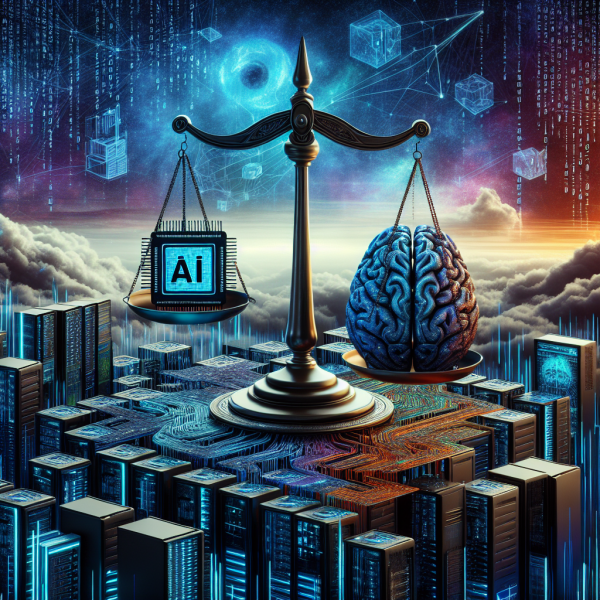Revolutionizing Industries: How Machine Learning Advancements Are Transforming Business Practices

Revolutionizing Industries: How Machine Learning Advancements Are Transforming Business Practices
In the rapidly evolving landscape of technology, few advancements have had as profound an impact on business practices as machine learning (ML). This subset of artificial intelligence has not only transformed how companies operate but has also revolutionized entire industries, from healthcare to finance, retail, and beyond. With the ability to analyze massive amounts of data and identify patterns at an unprecedented speed, machine learning has become a powerful tool that is reshaping the business world.
The Rise of Machine Learning
Machine learning involves the use of algorithms that can improve and adapt over time without being explicitly programmed. This capability stems from the ability of these algorithms to learn from data and experiences, enabling businesses to make predictions, automate processes, and personalize customer experiences. As vast amounts of data—often referred to as Big Data—continue to grow, organizations are increasingly leveraging machine learning to harness the insights hidden within.
Transforming Industries
-
Healthcare: Machine learning is making significant strides in healthcare, enabling predictive analytics that can lead to more accurate diagnoses, improved patient outcomes, and reduced costs. Algorithms can analyze medical images, genetic information, and patient records to identify underlying conditions and propose personalized treatment plans. For example, companies like Zebra Medical Vision are using machine learning to interpret medical imaging data, aiding radiologists and enhancing decision-making.
-
Finance: In the finance sector, machine learning is being used for fraud detection, risk assessment, and algorithmic trading. By analyzing transaction data in real-time, financial institutions can spot anomalies that may indicate fraud, helping to protect consumers and prevent losses. Furthermore, robo-advisors are emerging, leveraging machine learning to analyze client data and market trends to provide personalized investment advice at a fraction of the cost of traditional financial advisors.
-
Retail: The retail industry is experiencing a metamorphosis, driven by machine learning technologies that enhance customer experiences and streamline operations. From personalized product recommendations based on browsing history to optimized inventory management, retailers are better equipped to meet consumer demands. Companies like Amazon harness machine learning to analyze customer behavior, providing tailored suggestions that drive sales and increase customer loyalty.
-
Manufacturing: The manufacturing sector is adopting machine learning to improve efficiency, reduce downtime, and enhance quality control. Predictive maintenance is one application, where machine learning algorithms analyze data from sensors on equipment to forecast failures before they occur. This proactive approach minimizes production interruptions and extends the lifespan of machinery, ultimately driving cost savings.
- Transportation and Logistics: The logistics industry is experiencing a transformation through machine learning applications that optimize routes, forecast demand, and manage supply chains. Companies like UPS and FedEx are utilizing machine learning to enhance delivery efficiency, reduce fuel consumption, and improve customer satisfaction.
Overcoming Challenges
Despite its transformative potential, the integration of machine learning into business practices is not without challenges. Ethical considerations surrounding data privacy, algorithmic bias, and the need for skilled personnel to develop and manage ML systems must be addressed. Additionally, the reliance on data quality is paramount; poor or biased data can lead to inaccurate predictions and adverse outcomes. Organizations must be vigilant in ensuring their data practices are both ethical and robust.
The Future of Business Practices
As machine learning technology continues to advance, its impact on business practices will only grow. Emerging trends like federated learning and explainable AI aim to make machine learning more secure and transparent, allowing businesses to broaden their applications while addressing ethical concerns. Small and medium-sized enterprises (SMEs) are also beginning to adopt these technologies, as accessibility to affordable AI solutions increases.
Moreover, the COVID-19 pandemic has accelerated digital transformation across industries, emphasizing the need for agility and adaptability. Businesses that embrace machine learning stand to gain a competitive edge, tapping into actionable insights that can inform strategic decisions.
Conclusion
Machine learning is no longer just a futuristic concept; it is actively revolutionizing industries and transforming business practices. The ability to derive meaningful insights from data, automate processes, and enhance customer experiences is unlocking new avenues of growth and efficiency. As organizations continue to navigate the complexities of a digital economy, machine learning will undoubtedly remain at the forefront of their strategies, shaping the future of work and commerce. Embracing this technology, while addressing its related challenges, will be key to thriving in an increasingly competitive landscape.














